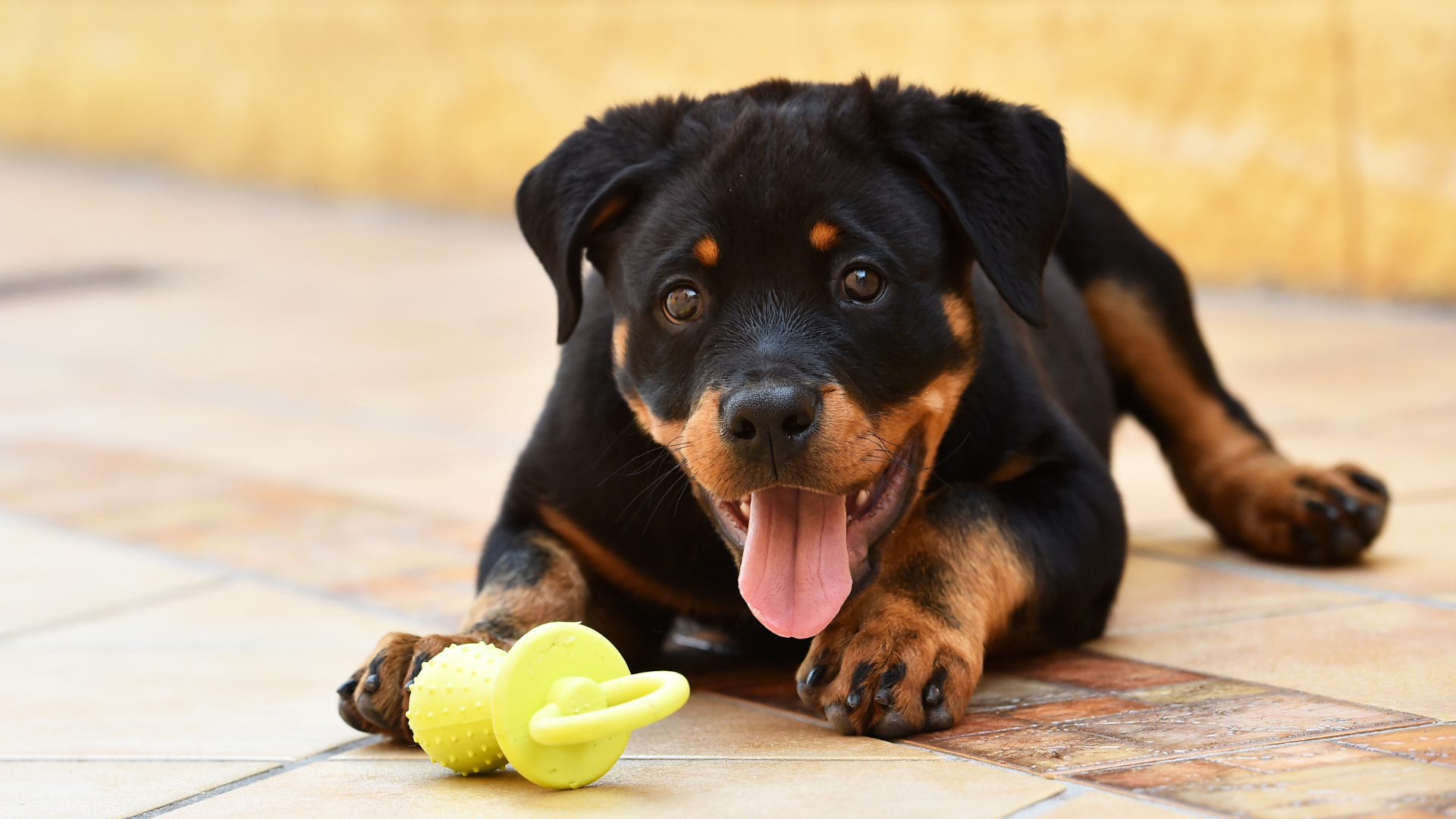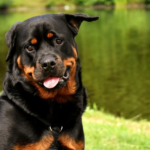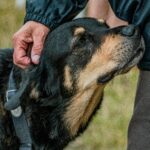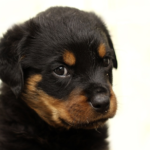As they develop and mature, Rottweiler puppies go through a number of behavioral stages. Owners of dogs can better teach and care for their pets by being aware of these Rottweiler puppy behavior stages.
Neonatal Stage – Birth to 2 weeks
The neonatal stage, which lasts from birth to two weeks of age, is the first stage of Rottweiler puppy behavior. Puppies cannot engage with their environment at this stage since they are totally reliant on their mothers.
Transitional Stage – 2 weeks to 4 weeks
The transitional stage, which lasts from two to four weeks of age, is the second stage. Puppies start to explore their surroundings and develop their senses during this period. They will also begin to communicate with their mother and other members of their litter.
Socializing Period – 4 weeks to 12 weeks
The socializing period, which lasts from four to twelve weeks of age, is the third stage. For Rottweiler puppies, this is the most crucial stage since it is at this age that they begin to learn how to get along with other dogs and people. To help them grow into well-adjusted and confident adult dogs, it’s crucial to expose them to a variety of people, animals, and circumstances during this period.
Juvenile Stage – 12 weeks to 24 weeks
The juvenile stage, which lasts from 12 to 24 weeks of age, is the fourth stage. Rottweiler puppies continue to grow and develop during this period. They’ll develop greater independence and self-assurance and start to fight their owners for supremacy. To make sure that your Rottweiler knows who is in charge, now is a good time to set up clear rules and boundaries.
Adolescent Stage – 24 weeks to 2 years
The adolescent stage, which lasts from 24 weeks to 2 years of age, is the last stage of Rottweiler puppy behavior. Rottweiler puppies will continue to develop during this period, becoming more self-assured and independent. They will also start to push their limits and compete for supremacy with their owners. To help your Rottweiler develop into a well-mannered and submissive adult dog, it’s crucial to keep training and socializing him now.
How To Train Rottweiler Puppy To Be Friendly?
Although Rottweilers are renowned for their devotion and protectiveness, they can also be aggressive toward humans and other animals if they are not properly trained. Early training and socialization are crucial if you want your Rottweiler puppy to mature into a sociable and well-mannered adult. Here are some pointers for socializing and teaching your Rottweiler puppy:
- Beginning obedience training is recommended. Basic commands like “sit,” “stay,” “come,” and “heel” can help you establish yourself as the pack leader and lay the groundwork for more advanced training.
- Early on, socialize your dog. While they are still young, expose your puppy to a variety of people, animals, and settings. Future fear and violence may be lessened as a result.
- Use positive reinforcement. are more efficient and kind than those that emphasize punishment. Instead of hitting or yelling at your dog when they behave properly, give them treats and praise.
- The key is consistency. Puppy socialization and training require persistence and patience. Maintain a schedule and confirm that all members of the family are utilizing the same directives and training techniques.
- Think about signing up for a class. A qualified trainer can provide you with advice on the best ways to socialize and train your Rottweiler, as well as teach you and your dog specialized abilities.
You can make sure that your Rottweiler puppy develops into a well-mannered and social adult dog by paying attention to the advice in this article. Though each dog is unique and training may take more or less time for each, with time, patience, and positive reinforcement, you can help your puppy develop into a well-rounded, affectionate, and sociable canine companion.
How Do I Know If My Rottweiler Puppy Is Happy?
Observing your Rottweiler puppy’s body language is one way to determine whether it is happy. A happy Rottweiler puppy will stand up straight with its tail gently wagging. It might also display a lively attitude, with ears perked up and a relaxed smile on its face.
Other indications of a happy Rottweiler puppy include playfulness and responsiveness to eye contact, as well as a general willingness to be around people and other animals. A content Rottweiler puppy will also be easy to teach, have a healthy appetite, and be energetic. Your Rottweiler puppy’s happiness and health can be helped by routine vet visits and a balanced diet.
Final Thoughts About Rottweiler Puppy Behavior Stages
In conclusion, as Rottweiler puppies develop and mature, they go through a number of behavioral stages. Owners of Rottweiler dogs can better teach and care for their pets by being aware of these stages. Each stage has its own traits and calls for a distinct method of socialization and training.
To have a well-adjusted, self-assured, and obedient Rottweiler, it is essential to expose them to various situations, people, and animals, as well as to consistently and positively reward their training.







